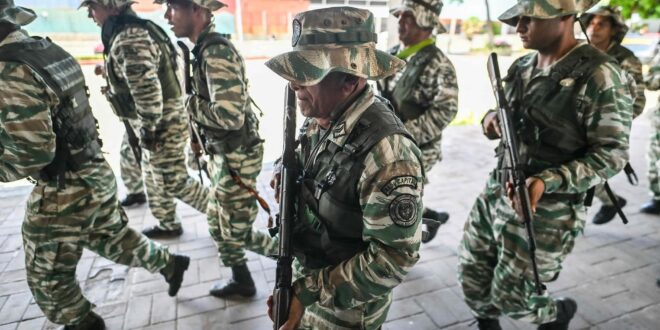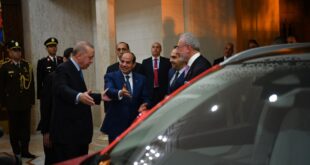New phase of U.S.–Venezuelan tensions unfolds amid large-scale military drills
Sahar Ragab
Venezuela has launched a new phase of its nationwide military drills under “Operation Independence 200”, following direct orders from President Nicolás Maduro, the Ministry of Defense announced on Tuesday.
The drills began at 4 a.m. on November 11, with the Bolivarian National Armed Forces entering a state of full combat readiness. The ministry said the operation aims to strengthen Venezuela’s overall defensive capabilities and test the army’s ability to respond to potential external threats — a clear reference to the increased U.S. military presence in the Caribbean.
A Show of Strength Amid Rising Tensions
The new maneuvers come at a time of heightened strain between Caracas and Washington, as both sides exchange accusations. Venezuela claims the U.S. is preparing “provocative military actions” near its waters under the pretext of anti-narcotics operations, while the U.S. describes Maduro’s government as “a destabilizing actor in the region.”
Reports from local media indicate that Venezuelan forces have deployed coastal defense units and anti-aircraft missile systems near strategic ports, while the navy has conducted “maritime deterrence exercises.” Meanwhile, U.S. reconnaissance aircraft have been spotted flying close to Venezuelan airspace.
President Maduro described the drills as “a message of sovereignty and independence,” asserting that Venezuela “will not tolerate any external force threatening its security or territorial integrity.”
Macron Sounds Alarm Over Caribbean Tensions
Speaking at the G7 summit in Paris, French President Emmanuel Macron voiced deep concern over the growing militarization of the Caribbean, warning that the situation could “spiral out of control” if diplomacy fails.
“The recent surge of U.S. naval operations and Venezuela’s counter-deployments are alarming,” Macron said, urging all parties to exercise restraint and reopen diplomatic channels.
He cautioned that “any unilateral actions that violate international law in the Caribbean will have serious consequences,” in a thinly veiled reference to U.S. military operations that France and several European partners view as excessive.
A Broader Geopolitical Standoff
Analysts see these developments as part of a wider struggle for influence in Latin America. Venezuela argues that U.S. actions are designed to undermine the Maduro government, while Washington insists it seeks to safeguard its interests and combat organized crime.
Observers warn that the situation could escalate into a limited confrontation or proxy conflict, especially as Russia and China continue to express political and logistical support for Caracas — a dynamic reminiscent of Cold War power rivalries.
Conclusion
Venezuela’s activation of “Operation Independence 200” is more than a military exercise; it is a strategic statement of sovereignty and defiance. Meanwhile, Macron’s remarks underscore that the tension is no longer a bilateral U.S.–Venezuelan dispute but a regional security issue with potential global repercussions.
As both Washington and Caracas dig in, the Caribbean may be on the verge of its most serious geopolitical test in decades — one that could redefine the balance of power across the Western Hemisphere
 موقع وجه أفريقيا موقع وجه أفريقيا هو موقع مهتم بمتابعة التطورات في القارة الأفريقية
موقع وجه أفريقيا موقع وجه أفريقيا هو موقع مهتم بمتابعة التطورات في القارة الأفريقية



